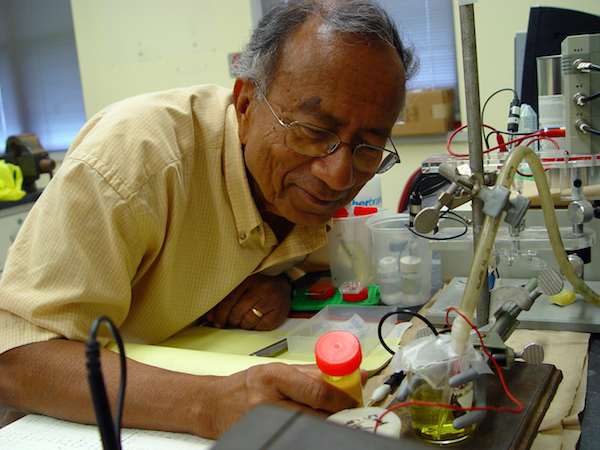
[Image above] New Jersey Institute of Technology research professor Zafar Iqbal led a team of researchers in the development of a new thermochromic paint formulation.
Thermochromic paint changes color with temperature—and, like Glenn Frey, it can signal when the heat is on.
Researchers at the New Jersey Institute of Technology have stirred up a new paint formulation that is more than just fun—their paint could give an early warning signal that equipment may malfunction, explore, or overheat.
“We essentially modified commercial paints and introduced nanotechnology-based concepts to tailor the trigger temperatures,” research professor and lead author Zafar Iqbal says in an NJIT press release.
Supported by the U.S. Army Armament Research Development and Engineering Center, the research project formulated a thermochromic paint that can indicate high-temperature exposure and identify longer periods of exposure at different temperature levels.
The paint, called a “thermal indicating composition,” contains polydiacetylene (PDA) polymers in combination with nanoparticles (0.01–2.0 wt%) of ZnO alloyed with one or more transition metal oxides, according to the filed U.S. patent.
The NJIT press release states that the paint can be applied as a coating or as a single mark on a material to indicate rising temperature, starting at ~95°F, in shades from blue to red.
According to the patent, “the monomers making up the PDAs are typically colorless and become increasingly colored with polymerization.”
For the Army’s purposes, the paint will be used on munitions to monitor exposure to high temperatures, which can deplete stabilizers within weapons to make them potentially dangerous.
“The technology has potentially wider applications as well, including as a temperature indicator for factory machines and household appliances and tools signaling they have become dangerously hot, or as a warning to firefighters of the intensity of a fire on the other side of a door coated with the thermal paint,” the press release states.
